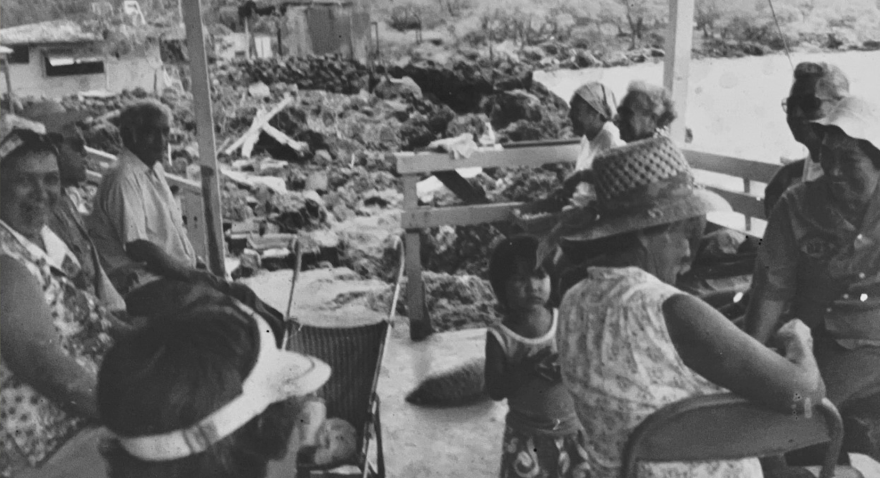Maui County began offering tax relief to longtime families fighting to hold onto their ancestral lands — properties that have been passed down for at least three generations.
The new measure known as the ʻĀina Kupuna law took effect in December, providing tax relief to lineal descendants grappling with a rise in property taxes due to skyrocketing real estate values.
Edward "Eddie" Chang, 90, gave HPR a tour of his near-complete home in Makena on Mauiʻs south shore, just yards from the coastline on land his family has owned since 1925.
"Here’s the kitchen, dining room. It’s only two bedrooms. I got plenty of skylights."
Chang began building in 2004, but hasnʻt been able to complete the home. He's been living with his wife Laurie in the detached garage because of the recent property tax hike.
"I mean all the money from my farm went into making that house and after a while I didnʻt have enough because they kept raising the taxes. It started from, what, $700 and every year," Chang said.
It kept going up — peaking at $22,000 in 2019.
The approval of the ‘Āina Kupuna measure meant Chang would only pay the minimum property tax of $350 a year.
"I was actually trying to sell some of this property. When I found out the county accepted that in principle, I couldnʻt believe it. To create an idea that would provide relief for my family, you know it was really something. I slept real good when that happened," Chang told HPR.
Longtime families hoping to take advantage of the new law must be a lineal descendant of the original owner, and the property must have been held in the family for at least three generations or more than 80 years. The ancestral land must also be located in a special management area.
Molokaʻi councilmember Keani Rawlins-Fernandez, who championed the measure, says she’s been hearing a lot of positive feedback on the measure, especially from longtime families.
"You know families just really thankful for this legislation passing, but we also received feedback on how to improve or expand this legislation so that more of our residents will be able to benefit," she said.
Rawlins-Fernandez says she wants to see how this round of tax relief works out before proposing any further changes. But her overall motivation is ensuring future generations don’t have to move away.
"On Molokaʻi, our community has fiercely protected our way of life and to prevent the exploitation of our ʻāina. Watching our sister islands go through the impacts of exploitation and displacement just fuels my fire to help the community that’s left to be able to stay," she told HPR.
Back in Makena, Eddie Chang says his application was approved but he wonʻt see the impact to his property tax billl until July 1.
"I think what this will do, it’ll save property that locals are forced to sell because they can’t afford to live there, and that’s what I think this tax relief is all about," he said.
In the meantime, Chang’s replenishing his savings to finish his home.
Application forms can be found on the Maui County Real Property Assessment Division website.






